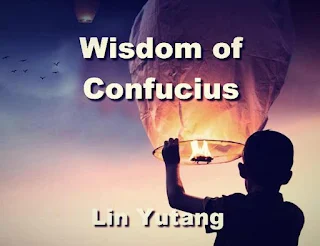Wisdom of Confucius
from the introduction
To put it briefly, Confucianism stood for a rationalized social order through the ethical approach, based on personal cultivation. It aimed at political order by laying the basis for it in a moral order, and it sought political harmony by trying to achieve moral harmony in man himself.
Thus its most curious characteristic was the abolition of the distinction between politics and ethics. Its approach was definitely an ethical approach, differing from the Legalists who tried to bring about a strong nation by rigid enforcement of the law.
It was also a positive point of view, with a keen sense of responsibility to¬ ward off one’s fellow men and the general social order, as distinguished from the negative cynicism of Taoism. Fundamentally, it was a humanist attitude, brushing aside all full metaphysics and mysticism, interested chiefly in the essential human relationships, and not in the world of spirits or in immortality.
The strongest doctrine of this particular type of humanism, which accounts for its great enduring influence, is the doctrine that “the measure of a man is man,” a doctrine which makes it possible for the common man to be^ somewhere as a fol¬ lower of Confucianism by merely following the highest instincts of his own human nature, and not by looking for perfection in a divine ideal.


